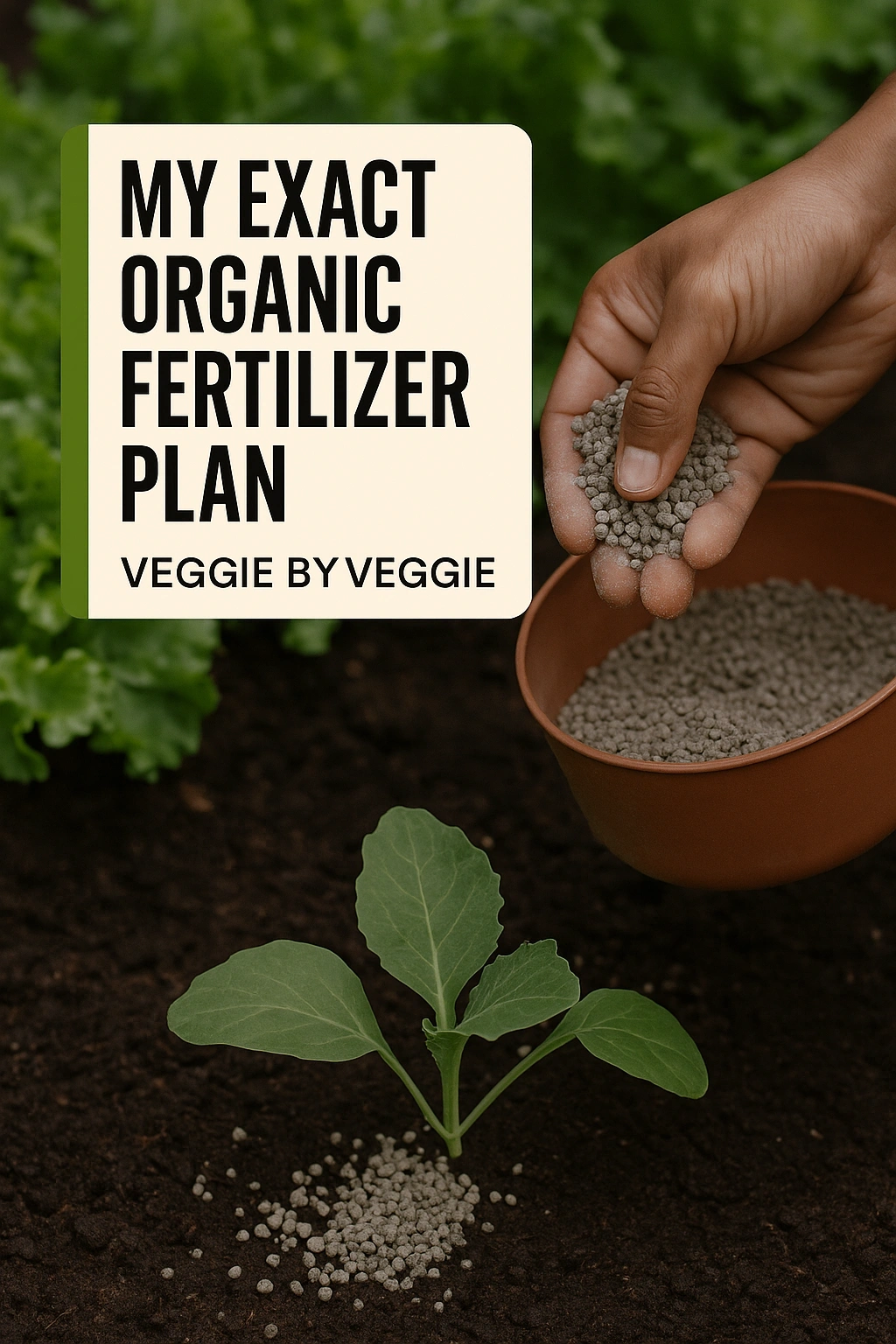
Are you ready to transform your vegetable garden into a thriving oasis of organic produce? In this comprehensive guide, I share my exact organic fertilizer plan for each vegetable, ensuring your plants get the nutrients they need to flourish. Whether you are a seasoned gardener or a beginner, this plan will help you cultivate healthy, vibrant plants using natural fertilizers. Discover the secrets to organic gardening success and watch your garden thrive.
Understanding Organic Fertilizers
Organic fertilizers are derived from natural sources, such as plant or animal matter, and they enrich the soil without the harmful effects of synthetic chemicals. They improve soil health, enhance microbial activity, and promote sustainable gardening practices. Understanding the different types of organic fertilizers and how they work is essential for maximizing your vegetable garden’s potential.
Types of Organic Fertilizers
- Animal-based fertilizers: These include manure from cows, chickens, and other livestock. They are rich in nitrogen and beneficial microbes.
- Plant-based fertilizers: Composed of compost, seaweed, and green manure, these fertilizers provide essential nutrients and improve soil structure.
- Mineral-based fertilizers: Rock phosphate and greensand are examples that supply minerals and trace elements necessary for plant growth.
Creating Your Organic Fertilizer Plan
To create an effective organic fertilizer plan, consider the specific needs of each vegetable you wish to grow. Different plants require different nutrients, and understanding these needs will help you tailor your approach for optimal growth. Here’s a breakdown of my organic fertilizer strategy for a variety of common vegetables.
Tomatoes
Tomatoes thrive on a balanced diet of nutrients, particularly nitrogen, phosphorus, and potassium. Start with a base layer of compost when planting. As the plants grow, feed them with a diluted fish emulsion or liquid seaweed every two weeks. This will support lush foliage and abundant fruit production.
Carrots
Carrots prefer a slightly lower nitrogen level to ensure proper root development. Amend the soil with well-rotted compost and add bone meal during planting for phosphorus. Throughout the growing season, consider a side dressing of aged manure to provide additional nutrients without overwhelming the roots.
Lettuce
Lettuce grows quickly and requires consistent moisture and nutrients. Start with a rich compost mix and apply a balanced organic fertilizer every few weeks. Look for options that contain nitrogen and trace minerals to promote leafy growth.
Seasonal Adjustments to Your Fertilizer Plan
Adjusting your fertilization plan according to the seasons is crucial for maintaining soil health and plant vitality. Different times of the year can affect nutrient availability and plant needs.
Spring Fertilization
In early spring, as the soil warms up, it’s important to incorporate organic matter such as compost. This will help improve soil structure and provide essential nutrients for new plant growth. Apply a slow-release organic fertilizer to support the initial growth phase of your vegetables.
Summer Care
During the summer months, your plants will be in full growth mode. Regular feeding with liquid fertilizers, like fish emulsion or kelp, can boost nutrient levels. Ensure consistent watering, as this helps nutrients reach the roots effectively.
Monitoring and Adjusting Fertilizer Application
Regular monitoring of your plants is essential to determine if your fertilizer plan is effective. Look for signs of nutrient deficiency, such as yellowing leaves or stunted growth, and adjust your fertilization accordingly. Testing your soil every season can also provide valuable insights into nutrient levels and pH balance.
Signs of Nutrient Deficiency
- Yellowing leaves: Often indicates nitrogen deficiency.
- Purple leaves or stems: May signify phosphorus deficiency.
- Stunted growth: Can result from insufficient potassium or overall nutrient imbalance.
Best Practices for Applying Organic Fertilizers
To maximize the effectiveness of your organic fertilizers, consider the following best practices. These will help ensure that your plants receive the nutrients they need without causing harm to the environment or the soil.
Application Techniques
- Even distribution: Spread fertilizers evenly around the base of plants to prevent nutrient burn.
- Watering: Always water your plants after applying fertilizer to help nutrients penetrate the soil.
- Timing: Apply fertilizers in the early morning or late afternoon to minimize evaporation and maximize absorption.
Frequently Asked Questions
What is the best organic fertilizer for vegetables?
The best organic fertilizer for vegetables varies by crop but generally includes compost, well-rotted manure, or specific plant-based fertilizers like fish emulsion. Tailor your choice to the specific needs of each vegetable.
How often should I fertilize my vegetable garden?
Frequency of fertilization depends on the type of fertilizer used and the specific plant needs. Generally, applying organic fertilizers every four to six weeks during the growing season is effective, but always monitor your plants for signs of deficiency.
Can I make my own organic fertilizer?
Yes, you can make your own organic fertilizer using kitchen scraps, yard waste, and other natural materials. Composting is a great way to create nutrient-rich fertilizer that benefits your vegetable garden.
Is organic fertilizer better than chemical fertilizer?
Organic fertilizers improve soil health, promote biodiversity, and reduce environmental impact, making them a preferable choice for sustainable gardening. Chemical fertilizers can provide quick results but may harm soil and water quality over time.
What role does soil health play in organic gardening?
Soil health is critical in organic gardening as it influences nutrient availability, water retention, and microbial activity. Healthy soil supports robust plant growth and improves resilience against pests and diseases.
